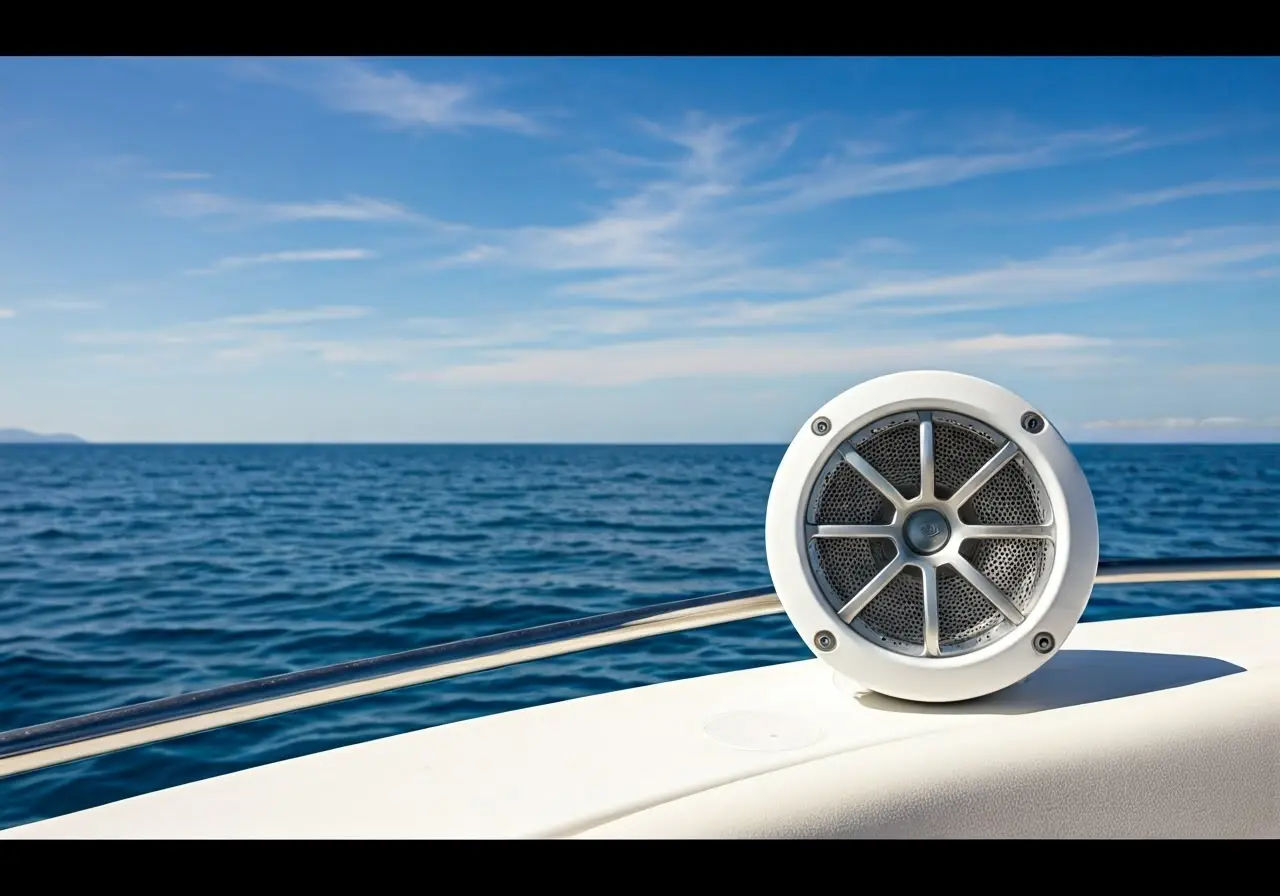How Does Marine Audio Differ from Regular Audio?
When it comes to enjoying music on the water, whether you’re sailing on the open sea or lounging on a lakeside dock, the right audio equipment can make all the difference. But marine audio isn’t just regular audio equipment taken to sea; it’s specifically designed to withstand the unique challenges of the marine environment. In this blog, we’ll explore how marine audio differs from regular audio, helping you make informed decisions for your on-water sound system.
What Makes Marine Audio Unique?
Marine audio systems are built to endure harsh marine environments, which involve exposure to water, salt, and sun. They include added features like waterproofing, UV stabilization, and rustproof components, unlike typical audio devices. This means marine stereos are equipped to face these challenging conditions without losing their functionality. Standard audio equipment doesn’t have these protections, making it susceptible to damage when exposed to the marine environment.
One of the remarkable features of marine audio systems is their installation capability in various locations such as the cabin, cockpit, or even on poles along the deck. The marine stereo, for instance, is a specialized type of stereo engineered to thrive in marine environments by being waterproof and shockproof. This essential feature ensures that music can be enjoyed without interruption, even under adverse conditions, setting it apart from regular stereos which simply cannot withstand such challenges. Thus, marine audio is essential for anyone looking to enjoy high-quality sound while on the water.
In marine environments, standard speakers would not just fail to deliver quality sound; they might entirely stop functioning. Regular speakers often have components, such as plastic speaker grilles, that aren’t robust enough for sea use. On the other hand, marine speakers have added power and are designed to project sound over vast distances, ensuring your music isn’t drowned out by the waves How to Choose Marine Audio Systems | Boat Sound Systems Guide.
How Does Weather Resistance Play a Role?
Weather resistance is a critical feature of marine audio systems. These devices resist corrosion and damage primarily because they are designed to cope with the harsh impacts of saltwater exposure, which is a daily challenge in marine settings. As humidity, water splashes, and salt can be highly corrosive, marine audio systems incorporate materials and technologies that provide superior protection over regular audio equipment, which might only offer minimal waterproofing.
Beyond waterproofing, marine audio systems often feature UV stabilization to handle the relentless sun exposure on the water. Sunlight can deteriorate regular speaker material faster, leading to compromised sound quality and damage. With UV-stable components, marine speakers maintain their durability and ensure your tunes stay clear and crisp throughout your boating adventures.
Installation Differences and Challenges
Installing marine audio can be more complex due to the unique environment. Standard installations typically occur in controlled environments, but marine installations must cater to open, often wet and windy, outdoor settings. This demands careful consideration of the equipment’s positioning to ensure optimal function and longevity. In marine setups, safeguarding electrical connections is paramount to prevent any potential hazards encountered with moisture and corrosion.
Certain components, such as subwoofers and amplifiers, may require additional installation considerations. Subwoofers provide a deep bass that amplifies the audio experience and can be a significant upgrade to any marine audio system, delivering powerful sound with precision How to Choose Marine Audio Systems | Boat Sound Systems Guide. Additionally, amplification is a critical aspect of installation in marine audio because it boosts power, making it easier to drive sound over external noises like crashing waves.
Sound Quality: Does Marine Mean Compromise?
Marine audio systems are engineered to deliver robust sound quality, even in open, noisy environments. Although different in design, they do not compromise on sound performance compared to regular audio systems. With the right setup, it’s possible to achieve crystal-clear audio clarity that cuts through ambient noise, creating an immersive listening experience comparable to what you might achieve in a grounded, controlled environment.
By incorporating more power and strategic speaker placement, marine audio achieves impressive sound projection. This superior sound quality is not just a bonus; it’s a necessity, given the unique and often loud conditions of the marine environment. The effectiveness of marine sound systems is evident in how they can maintain clear audio despite the interference from wind and water—a testament to their design and engineering excellence.
Choosing the Right Marine Audio System for You
Selecting the perfect marine audio system depends on your specific needs, boat size, and budget. It’s important to consider factors like speaker placement and additional features to customize your audio experience on the water. Systems vary from simple stereo setups to complex configurations involving multiple speakers and subwoofers, giving you the freedom to tailor your setup to fit your particular boating lifestyle and aesthetic preferences.
When considering options, it’s advisable to identify what your boating adventures demand. For instance, a small sailboat may not accommodate large speakers or amplification equipment, favoring the simplicity of compact systems. Conversely, larger yachts can host more extensive setups, possibly including external speakers or added connectivity options for diverse media sources How to Choose Marine Audio Systems | Boat Sound Systems Guide.
Key Takeaways on Marine Audio vs. Regular Audio
Understanding the differences between marine audio and regular audio helps ensure you invest in the right equipment for your needs. By choosing marine-specific audio gear, you ensure durability, withstand the elements, and enjoy a superior sound experience while on the water.
























































